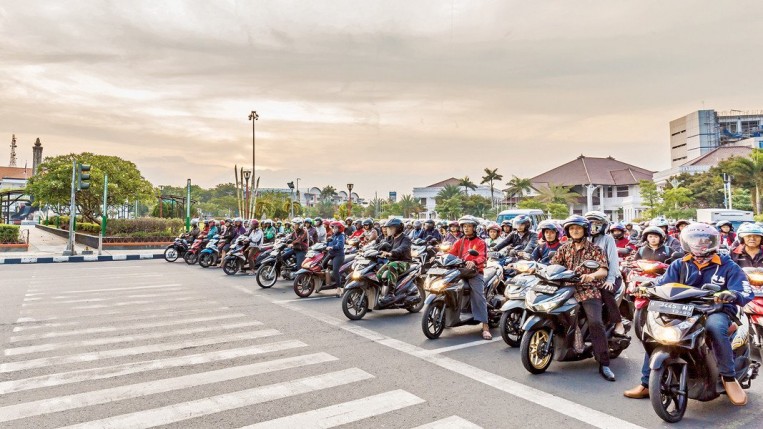Dennis To, legal director at Ralph Lauren in Hong Kong, told attendees at an International Trademark Association roundtable that because of Indonesia’s growing population and middle class – as well as strong domestic consumption – the brand must find a way in.
The roundtable, Bad-Faith Trademark Registration in China: Global Brand Owner Experiences and Forthcoming Policy Changes, was held in Hong Kong on April 15.
“The country’s population increases by 4.5 million annually. With 18,307 islands, over 742 different languages and a middle class larger than the population of Malaysia or Australia, it is the largest economy in Southeast Asia and is the only G20 member from Southeast Asia – let alone it is projected to be the seventh largest economy in the world by 2030,” To said.
But much to the company’s chagrin, Indonesia has adopted a first-to-file system for trademark registration, which affects the entrance of Ralph Lauren.
By the early 1990s, some of Ralph Lauren’s trademarks (including the name “Ralph Lauren”) were already registered by squatters, To says. “Local conglomerates such as Primajaya and Manggala have secured prior trademark registrations in Indonesia much earlier than Ralph Lauren. As a result, we cannot use our worldwide trademarks without the risk of being sued for infringement.”
On top of that, corruption remains a major obstacle for Ralph Lauren to enforce its rights in Indonesia.
“Although the situation has been improving, Indonesia is ranked 89th amongst 180 countries according to the Corruption Perceptions Index of Transparency International in 2018,” To says. “Indonesia scored a total of 37 on a scale of 0 (highly corrupt) to 100 (very clean), while the global average score is 43, indicating systemic corruption in the country’s public sector. The parliament is widely considered the most corrupt institution and a large part of the population reports paying bribes for services.”
Yet, there have been noticeable improvements in some areas, and the majority of the population has a positive view of the government’s efforts to fight corruption, he says.
Similar challenges apply in other countries, such as China, too.
Joe Simone, leader of the Bad Faith Trademark Registration Task Force under the INTA Enforcement Committee in Hong Kong and founder of SIPS in Hong Kong, says that there are two types of bad faith registrations: first being the filings that target victims, whereas the second being people that buy many trademarks seeking to sell.
“Bad faith registration is an epidemic in some countries and growing in others. The causes of that include trade globalization, the internet and loopholes in registrations as well as trademark office practices,” he said.
Simone suggested some practices brand owners could use to combat bad faith registration, including pushing costs onto pirates by increasing damages and legal fees paid. “Requiring submission of proof to use is another idea, but it should be submitted before registration is granted along with declaration of use or intent to use. Declaration of use should also be resubmitted after three or five years like in Mexico or Cambodia. Trademark offices should possess the power to reject applications based on bad faith registration criteria like what the Czech Republic, Finland, Hong Kong, Germany, Poland, Mexico and Slovakia offices are doing.”
Shifting the burden of proof to pirates with a low threshold should be considered, too, he says. “In terms of proving bad faith, there is very little statutory or case law clarifying standards, so the main questions become: Who has the initial burden of proof? What is the burden of proof for the victim and can the burden be shifted to the victim with a reasonably low burden of proof?”
Other suggestions Simone gave include the presumption of knowledge or awareness based on overseas use or registration and parties operating in the same line of business; requiring lawyers or agents to submit truthful evidence (which he says Vietnam and China are doing); accelerating decisions in bad faith registration cases (which Austria and the Dominican Republic are doing); court injunctions blocking trademark offices from examining bad faith applications (which India is doing); and no time limit for invalidations (which Croatia, Poland, Latvia, Norway, Lithuania and Indonesia are doing).
In terms of law development, China is now equipped with regulations to oppose decisions based on pure bad faith (Articles 7 and 30), to handle serial piracy more aggressively (Article 44.1), to relax use/fame requirements for foreigners (Article 32.2) as well as to provide copyright protection for logos (Article 32.1).
The draft provisions of the National Intellectual Property Administration also allow petitions by public leading to blacklisting, requiring pirates to provide evidence or explanations, allowing the trademark office to invalidate registrations and allowing social credit penalties.
Simone says an amendment of China’s trademark law is likely by the end of 2019.
Johnny Chan







